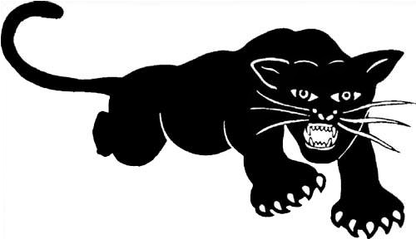
The metaphor of cat herding is a useful and fitting when working with decentralized, independent actors who are resistant to collective action, especially in grassroots tech and activist communities. It reflects the challenge of getting people to focus, organize, and work toward common goals without losing their autonomy or devolving into chaos.
With projects like #OMN and the broader #openweb movement, this “cat behaviour” is part of the problem, people (especially in the tech and activist communities) are often independent to a fault. Many resist structure, preferring to focus on their individual projects without acknowledging the necessity for governance and collaboration. It’s not enough to be open; without some kind of balance, “open” becomes vulnerable to co-option by corporate interests with #mainstreaming or at the grassroots paralysed by fragmentation.
Let’s look at some examples of balancing the “Common Sense” #mainstreaming mess:
The term #socialweb is a perfect example of an inadequate framing. The issue is that it simply doesn’t hold the critical, oppositional power needed to counter the problems caused by #mainstreaming platforms and narratives. The #openweb, clarified through the #4opens, offers a better path to activism that balances the inevitable co-option by corporations and NGOs like the #SWF (Social Web Foundation). But this balance only works if we acknowledge the simple reality: that both grassroots actors and corporations have access to these spaces, and that #blocking is not a real solution strategically.
The invisible power of #FOSS is another key aspect here. The foundation of corporate tech stacks is built on open-source projects, yet the social and political value of this is lost on many people who don’t see beyond the technical aspects. The same applies to the #geekproblem, which ties directly into the cat-herding analogy – people in the geek world to often miss the bigger picture and the need for broader, political engagement beyond coding or individual technical projects.
Cats vs. Humans in Governance
When grassroots movements fail to build their own governance structures, external actors step in. This is where NGOs or other “grown-up humans” take over. They come in to “pet the cats”, offering bowls of food and the “safety”, and the control of care, but ultimately exerting direction over a process that needs to be native, organic and grassroots-driven. This infantilises the community, pacifying it rather than empowering it.
The problem is that the “cats” let this happen because they are incapable of building the structures necessary to avoid it. If we don’t step up with human solutions, if we don’t create governance models that fit our ideals, we’re always losing control to external forces that don’t share our values and paths.
It’s beyond urgent to move from cat behaviour to human solutions, we are in an era of #climatechaos, where incrementalism and complacency are paths we can no longer take. We can’t keep trying to herd cats who refuse to collaborate on meaningful, systemic change. Instead, we need humans who can engage with the mess we’ve made and work together to clean it up.
To make this move from cat behaviour to human solutions:
- Build Native Governance: Grassroots projects need to establish their own governance from the start. This avoids outsiders stepping in and co-opting the movement. The #OGB is a solid step in this direction.
- Clarify Language and Values: Words like #socialweb lack the critical edge to inspire action. Framing like #openweb and #4opens make the values explicit and point to the political and social power of the alternative we’re built.
- Acknowledge Power Dynamics: Open means open for everyone, including corporations. But grassroots actors need to reclaim the open spaces they helped create rather than let these be dominated by corporate inflowing interests. Balance can only come from political awareness and active mediation.
- Move Beyond Individualism: The metaphor of herding cats also speaks to the issue of #stupidindividualism. We need to get beyond this and rebuild collectives, focusing on shared governance and goals rather than isolated actions.
- Challenge Corporate Co-Option: Just as #FOSS underpins corporate tech, we need to build movements that are resilient to corporate takeover. This involves structures and cultural values that resist domination and control.

It should not need to be repeated so often, the shift we need is cultural as much as it is technical. We can’t keep going down paths we know do not work and only lead us back to the current mess. We need to rethink what it means to be part of a collective and how to build governance that reflects our values, instead of relying on outside forces to define them for us #KISS
PS. I am thinking this could get messy, we need shovels #OMN